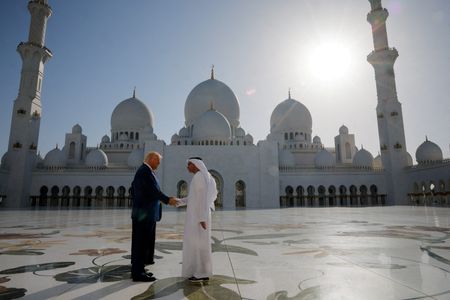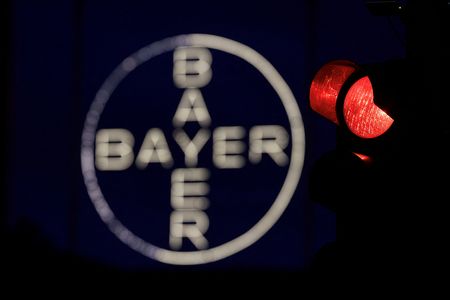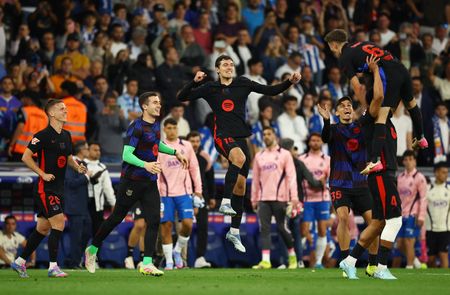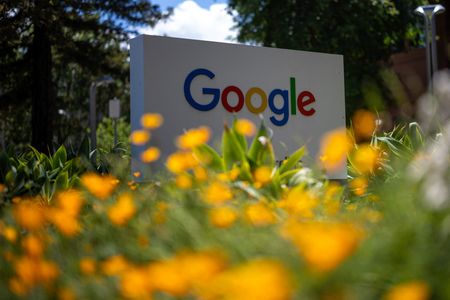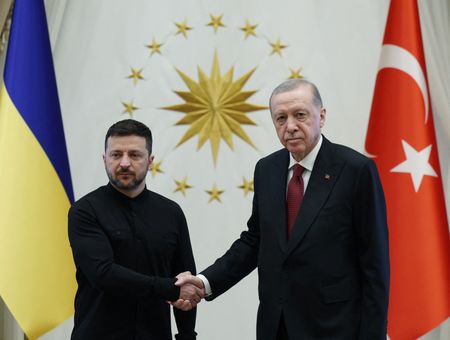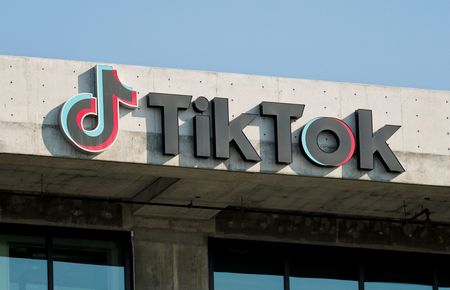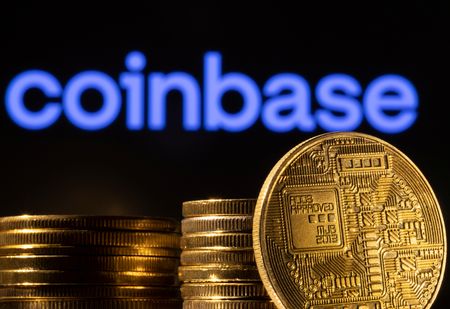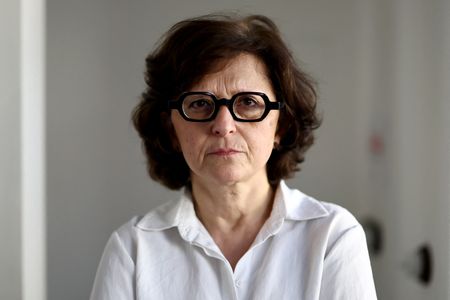By Gram Slattery, Andrew Mills, Federico Maccioni and Yousef Saba
ABU DHABI (Reuters) -President Donald Trump on Thursday pledged to strengthen U.S. ties to the United Arab Emirates and announced deals with the Gulf state totalling over $200 billion and the two countries also agreed to deepen cooperation in artificial intelligence.
After Trump’s meeting with UAE President Sheikh Mohamed bin Zayed Al Nahyan, the White House said he announced deals that included a $14.5 billion commitment from Etihad Airways to invest in 28 Boeing 787 and 777x aircraft powered by engines made by GE Aerospace.
The U.S. Commerce Department said the two countries also agreed to establish a “US-UAE AI Acceleration Partnership” framework and Trump and Sheikh Mohamed attended the unveiling of a new 5GW AI campus, which would be the largest outside the United States.
Sources have said the agreements will give the Gulf country expanded access to advanced artificial intelligence chips from the U.S. after previously facing restrictions over Washington’s concerns that China could access the technology.
Trump began a visit to the UAE on the latest stage of a tour of wealthy Gulf states after hailing plans by Doha to invest $10 billion in a U.S. military facility during a trip to Qatar.
“I have absolutely no doubt that the relationship will only get bigger and better,” Trump said in a meeting with UAE President Sheikh Mohamed bin Zayed Al Nahyan.
“Your wonderful brother came to Washington a few weeks ago and he told us about your generous statement as to the 1.4 trillion,” Trump said, referring to a UAE pledge to invest $1.4 trillion in the U.S. over 10 years.
Trump was referring to Sheikh Tahnoon bin Zayed Al Nahyan, Sheikh Mohamed’s brother and the UAE’s national security adviser and chairman of two of Abu Dhabi’s deep-pocketed sovereign wealth funds.
The U.S. president was met at the airport in Abu Dhabi by Sheikh Mohamed, and they visited the Sheikh Zayed Grand Mosque, its white minarets and domes, impressive in the late-afternoon light.
“It is so beautiful,” Trump told reporters inside the mosque, which he said had been closed for the day.
“First time they closed it. It’s in honor of the United States. Better than in honor of me. Let’s give it to the country. That’s a great tribute.”
$200 BILLION IN NEW DEALS
A White House fact sheet said Trump had secured $200 billion in new U.S.-UAE deals and accelerated the previously committed $1.4 trillion.
It said Emirates Global Aluminum would invest to develop a $4 billion primary aluminum smelter project in Oklahoma, while ExxonMobil Corp, Occidental Petroleum, and EOG Resources were partnering with the Abu Dhabi National Oil Company in expanded oil and natural gas production valued at $60 billion.
Sheikh Mohamed told Trump the UAE was “keen to continue and strengthen this friendship for the benefit of the two countries and peoples,” adding to Trump: “your presence here today, your excellency, the president, confirms that this keenness is mutual.”
Before his departure for the UAE, Trump said in a speech to U.S. troops at the Al Udeid Air Base southwest of Doha that defence purchases signed by Qatar on Wednesday were worth $42 billion.
UAE has been seeking U.S. help to make the wealthy Gulf nation a global leader in artificial intelligence.
The U.S. has a preliminary agreement with the UAE to allow it to import 500,000 of Nvidia’s most advanced AI chips a year, starting this year, Reuters reported on Wednesday.
The deal would boost the UAE’s construction of data centres vital to developing AI models, although the agreement has provoked national security concerns among sectors of the U.S. government.
The AI agreement “includes the UAE committing to invest in, build, or finance U.S. data centers that are at least as large and as powerful as those in the UAE,” the White House said.
“The agreement also contains historic commitments by the UAE to further align their national security regulations with the United States, including strong protections to prevent the diversion of U.S.-origin technology.”
Former U.S. President Joe Biden’s administration had imposed strict oversight of exports of U.S. AI chips to the Middle East and other regions. Among Biden’s fears were that the prized semiconductors would be diverted to China and buttress its military strength.
At the UAE presidential palace, Trump and Sheikh Mohamed could be seen in TV footage in conversation with Nvidia CEO Jensen Huang.
Trump said he would probably return to Washington on Friday after a regional trip that began on Tuesday, although he said it was “almost destination unknown.” Trump had hinted he could stop in Istanbul for talks on Ukraine.
DEALS, DIPLOMACY
Other big business agreements have been signed during Trump’s four-day swing through the Gulf region, including a deal for Qatar Airways to purchase up to 210 Boeing widebody jets, a $600 billion commitment from Saudi Arabia to invest in the U.S. and $142 billion in U.S. arms sales to the kingdom.
The trip has also brought a flurry of diplomacy.
Trump said in Qatar that the United States was getting very close to securing a nuclear deal with Iran, and Tehran had “sort of” agreed to the terms.
He also announced on Tuesday the U.S. would remove longstanding sanctions on Syria and subsequently met with Syrian interim President Ahmed al-Sharaa.
He urged Sharaa to establish ties with Syria’s longtime foe Israel.
Trump has made improving ties with some Gulf countries a key goal of his administration. If all the proposed chip deals in Gulf states, and the UAE in particular, come together, the region would become a third power centre in global AI competition after the United States and China.
(Reporting by Gram Slattery and Andrew Mills in Doha and Federico Maccioni, Nayera Abdallah and Tala Ramadan in Dubai; Additional reporting by Yousef Saba, Karen Freifeld and Hadeel Al Sayegh; Writing by Michael Georgy, Gram Slattery, Timothy Heritage Matt Spetalnick and David Brunnstrom; Editing by Andrew Heavens, William Maclean and Alistair Bell)

